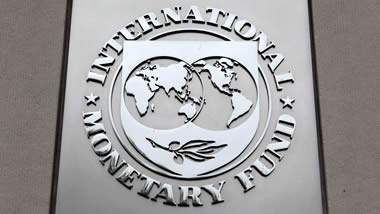The International Monetary Fund (IMF) has taken a significant step to support Egypt’s struggling economy by disbursing $820 million to the government. This disbursement is part of a larger $3 billion aid program that was approved by the IMF’s Executive Board at the end of 2022.
The IMF’s decision to release the funds comes at a crucial time for Egypt, as the country faces mounting economic challenges. In addition to the $820 million disbursement, the IMF also approved a $5 billion extension earlier this month, bringing the total lending to Egypt to $8 billion.
According to a news release from the IMF, the Egyptian government has made significant progress in meeting the objectives of the aid program, with the exception of the level of foreign currency reserves. IMF Managing Director Kristalina Georgieva praised the government’s efforts in implementing economic reforms, including unifying the exchange rate and tightening monetary and fiscal policies.
In response to rising inflation, the Central Bank of Egypt recently raised interest rates by six percentage points to 27.75 percent. This move was aimed at stabilizing the official exchange rate and curbing inflation, but it led to a sharp decline in the value of the Egyptian pound.
Egypt’s economy has been further strained by a drop in foreign currency earnings, stemming from various factors such as the impact of the COVID-19 pandemic on tourism, the war in Ukraine, and conflicts in the Gaza Strip. Additionally, attacks by Yemen’s Huthi rebels in the Red Sea and Gulf of Aden have disrupted dollar revenues from the Suez Canal, a vital waterway for global trade.
Despite these challenges, the IMF remains cautiously optimistic about Egypt’s economic prospects for the upcoming fiscal year. The IMF forecasts a growth rate of 4.4 percent, an improvement from the current fiscal year’s 3 percent growth.
President Abdel Fattah al-Sisi’s administration has undertaken ambitious infrastructure projects since 2013, but these initiatives have not generated sufficient revenues to offset the country’s growing foreign debt. Egypt’s foreign debt has surged from $46 billion in 2013 to over $165 billion in 2022, making it one of the countries most at risk of default, second only to war-torn Ukraine.
Overall, the IMF’s financial support and the Egyptian government’s commitment to economic reforms are crucial steps towards stabilizing Egypt’s economy and fostering sustainable growth in the future.
